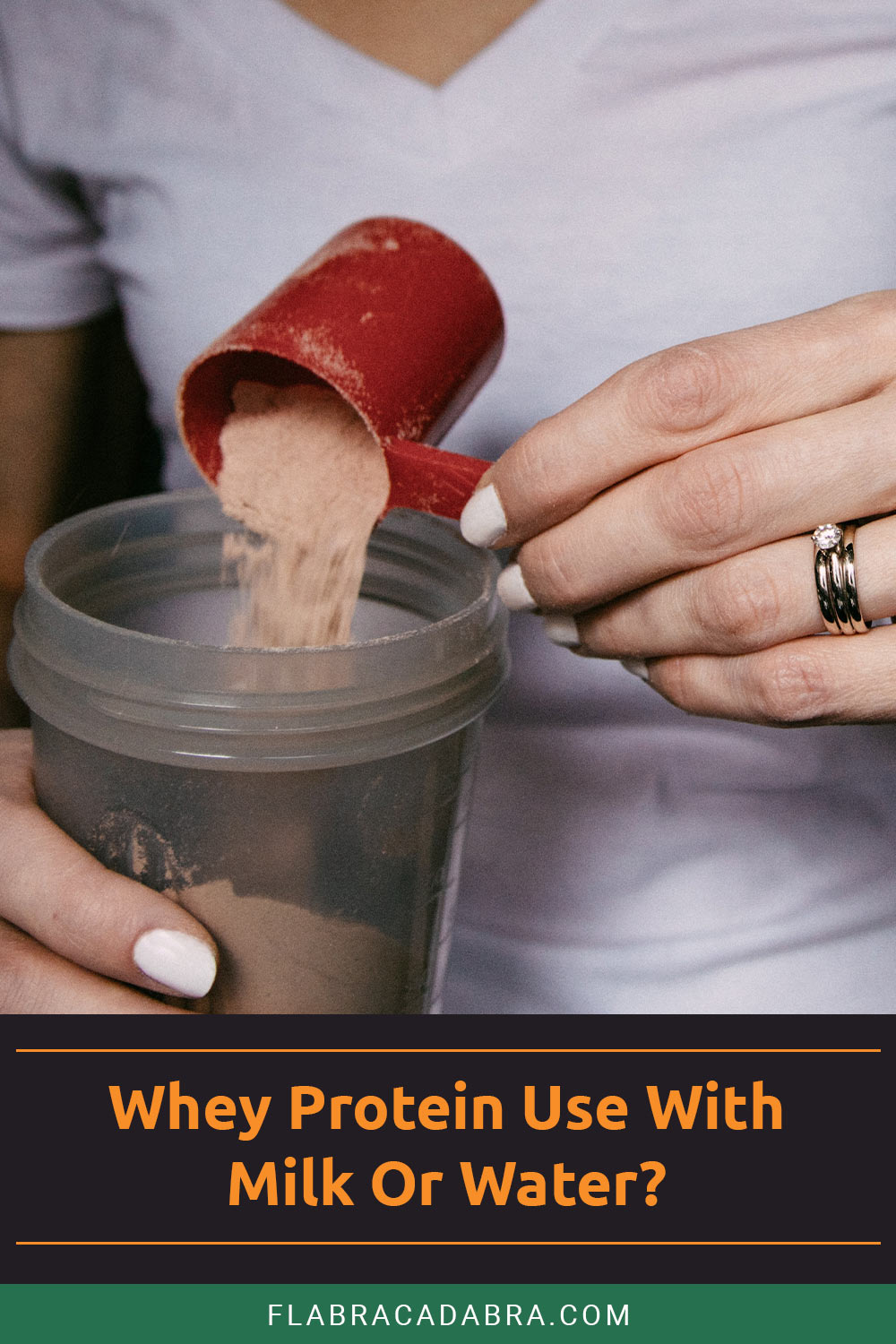Whey protein is a quick and easy way to easily increase your calorie intake to meet your protein goals. There are many factors that can affect your decision. Whether you’re looking for better taste, trying to cut, or building muscle mass can determine whether to use milk or water.
Most whey proteins are designed to be mixed with milk or water so what matters is what you’re looking to get out of your protein shake. Weigh the pros and cons of each before deciding whether to use milk or water with your protein.
What is the Difference?
Knowing the distinction between using milk or water with your whey protein could make all the difference in your fitness journey. The golden rule is to use whey protein with water while cutting and use milk when you’re bulking.
Milk adds more protein, making it slower to process, but it is great for building muscle. Mixing your whey with milk also is a long process and is better to take as a meal replacement or give you additional calories.
On the contrary, water is easier to mix with your whey and is best to drink right after your workout. Since water has no calories, this helps you digest the protein quicker and is best for muscle recovery.
Also, since water adds no flavor, look for whey proteins that are made with flavor so your protein shake isn’t doesn’t taste bland.
Which One is Better?
When deciding between the two, understand that each option has its own unique benefits as well as negatives. Depending on what your goals are, it’s best to weigh the pros and cons and see which aligns with your individual needs.
Milk
Pros
Using milk with your protein is known to be heavier and more filling. The additive nutritional value in milk as well helps you build muscle mass quicker. If you’re looking for taste, most people prefer adding milk to their protein shakes.
The milk gives the protein shake a slightly sweeter and creamier taste making it easier to drink if you’re looking to add a little flavor to your protein shakes.
Cons
The cons, however, are that you could feel more bloated with all the additional protein intake. The additional calories in each protein shake can add up and can affect you if you’re trying to stay lean.
If you are also not maintaining a healthy diet or training consistently, the additional calories can be stored as fat rather than turned into muscle.
Water
Pros
Water is typically used when you are looking to lose weight or cut but still want to hit your protein goals. Because there are no additional calories or protein with adding water, the stomach can process it quicker for faster absorption of protein.
Whey protein with water is perfect for drinking after a workout because it digests quickly and is easier to mix than milk.
Cons
There are only a few reasons why you shouldn’t drink your protein shakes with water. First, the taste isn’t the best as the water doesn’t add any flavor.
Which One has More Calories?
Those who are looking to bulk or reach their caloric intake goals use milk with their whey protein. The additional calories are also more filling, making you less hungry throughout the day.
Since water has no calories, most people use water to avoid adding any additional calories than what’s in the whey protein. Typically with milk, you’re getting, on average, around 220 calories per protein shake compared to only 110 calories when drunk with water.
With an average of around 110 calories more calories than water, milk is the clear choice if you’re looking for more calories.
Does Milk Make Your Protein Shake Harder to Digest?
When you’re trying to bulk, it’s recommended to have milk in your protein shake for the additional calories and protein.
This additional protein can help by providing constant amino acids, but it can be harder to process. Since the protein is harder for your stomach to process, it can go through your digestive system much slower.
So with the added protein by drinking milk with your protein shake, it digests slower in your stomach than with water. Also, if you are lactose sensitive, incorporating milk protein may be harder for your stomach upset and harder to process.
Can You Use Both Milk and Water?
Although most people typically use one or the other, there’s nothing wrong with wanting to use both milk and water. Using both milk and water can provide you with the best of both worlds, and you can get the benefits of both.
By incorporating some milk, you can get a better flavor than just mixing with only water. Using a little milk will also give you the benefits of the protein taking longer to digest, allowing your body to consistently get the nutrients throughout the day.
In addition, if you are lactose sensitive, using a little milk will help monitor the bloat and sensitivity of your stomach.
Final Thoughts on Whey Protein Use With Milk Or Water
Mixing your whey protein with milk or water can result in different outcomes. If you are trying to gain muscle mass, slower digestion by doing milk is the better choice.
If you drink your protein shake after your workout or trying to lose weight, use water to give you the benefits of the fast-acting whey protein needed to help your muscle recover without the additional calories.
Milk is known to give your protein shake a creamier and better overall taste. But, if you want to have the taste but are lactose sensitive, nowadays, you can find flavored whey proteins that will give you a great taste without upsetting your stomach.

